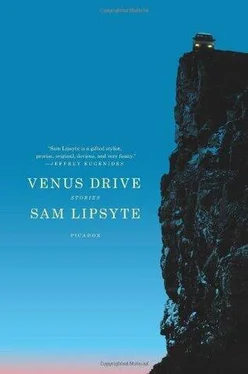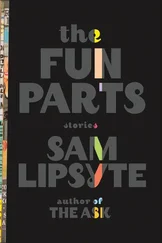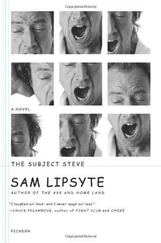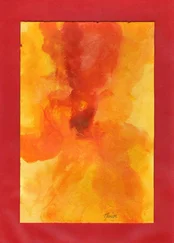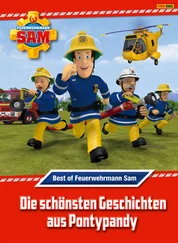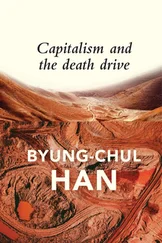The upshot is that I get this newsletter from time to time, bumper stickers, membership pins. The Brigade, I gather, is funded by the tobacco lobby, but they play themselves up grassroots, an astroturf campaign. It’s always the same lead story in the newsletter, a trucker bar somewhere that won’t comply with the local smoking laws. The goose-steppers, the anti-smoke Gestapo, they’ve shut the joint down. We threw all of our boys and Patton at them, but the Reich has finally won. Or maybe it’s the Reds. Either way the barmaid can’t make rent and the Constitution is a paper scrap borne off on criminal winds. No veterinary school for the barmaid’s son. He’s headed for the mills.
Those anti-smoking bastards, I’ll think, spark up another square. Then I remember there is no barmaid, no son, and I start to hack up sour chunks of myself, toss my cigarette in the can. Still, it would be nice to stay pissed, to get my hands on a Ruger, or a Desert Eagle, join the brigade. We would puff away in a toolshed and plot the nicotine secession. Let us not forget, one of us would rasp, there are millions like us, ready to die for freedom.
Dying for something, anything, is tricky, though. You’d better be sure you believe. There was a time, I must admit, I might have been willing to die for Katrine. Or at least, as she would say, discuss the possibility . We had a good amount of discussion before we called it quits. Breaking up, she said, should take at least as long as the together part. Otherwise, what was the point? Even when we knew it was over, each of us was waiting for the other to make the move, to assume the mantle of villainy, to blink. She blinked , I told myself when she finally left, like maybe here I was — Jack the Man. I was watching a lot of the History Channel then. I pictured footage of me in deep conference with my close advisors. What if there’s a CIA inside the CIA? What if she screwed that guy at work?
The greeting on Katrine’s answering machine, it’s so honeyed, so wise. Anyone would marry that voice, those cadences, those warm conjunctive halts. Sometimes I call just to hear her sing her poem, the one fashioned of a certain disappearance—“I’m not here right now”—and her deep sweet oath to “get back real soon.” Like the solution to a riddle that will spring the maiden from the dragon’s lair, all you have to do is speak the digits, say your telephone number into the machine, but even that’s too much for me. I let the tape roll out. I am the insufficient son, the older, gruffer one that fails at the cave mouth, back broken on the stones, guts strung up in trees. My type has a seemly sibling who will prevail.
I hang up, draw another smoke from the foil.
All it takes is a morning with the spreadsheets to glimpse the four horsemen of fiscal apocalypse thundering toward our dream of an IPO. There’s Plummeting Ad Sales, in his scorched robes, on his maggot-shot horse, waving a scythe. I bolt from my desk, pass two design guys in the next room arguing about the new homepage art. Don’t bother, I want to tell them, but in this business you can trash a perfectly good career leaking catastrophe an hour before it’s official.
Martha is in the corner office, cooing smoke. It’s hard to tell Martha’s age, but the drop of her face, the veins in her hands, remind me of my mother right before she got sick. When your mother is dead, maybe every woman over a certain age reminds you of her. You’ll find it in an eyebrow, the varicose nova on a stubbly calf, beckoning you to bury your head on her breast and weep.
My advice: Don’t do it.
“How are you, Martha?”
“Fucking pricks don’t pay for their newspapers,” she says. “Grab one, say ‘Get you next time, honey!’ Get fucking this next time! I got rent, you know.”
“Tell me about it.”
“I am, you moron.”
“I know that, Martha,” I say.
“Fuck you, too,” she says, flips her More to the carpet, grinds it out with her espadrille. “You pricks are all the same.”
True, and probably I owe Martha a few bucks myself, but the way things are going I’ll need them. Now Rich walks in, a silver pin stuck in his lapel, his hair slicked back in the style of men who seem to be saying, Hey, go blow, my hair is slicked back, and on weekends I know joy.
“Big doings on your floor, buddy. I’m smelling napalm.”
“What?”
“My only advice for you is to remember to tape the bottom of the box. Got a light?”
It hits me in the stairwell, that pin. The Smoker’s Brigade. Comrade. We could start a cell here in the building, rig Martha with dynamite girdles, send Mikhail on recon jobs through ventilation ducts into the Lysol’d HQ’s of pinklungers. Rich and I would vie for the fealty of our troops until one of us, probably me, came up python eyes in his biopsy. Unwilling to wheeze my way to the Great Smoking Section Beyond, I’d pass my Desert Eagle over to Rich and shut my eyes.
“Savor the fine tobacco flavor for me, Sport,” he’d say, thumb the hammer back.
“Fuck toil, bro!” Mikhail would shout.
“Do the prick,” Martha would hiss.
Downstairs, everyone is weeping and hugging, or readying a lawsuit. There’s a rented cop in my cube.
“Personal files only,” he says.
The boss sticks his head in, his face flushed, teary, trauma-elated.
“You were great,” he says. “You did great work. We all did. They didn’t give me a chance. I could have turned this thing around.”
“I missed your speech,” I say.
“Anything I can do for you, let me know,” he says. I almost ask him to hold down the tape at the bottom of the box.
When my mother was dying I kept going down to the street to smoke. You would think I would be some kind of pariah lighting up outside a cancer ward, but no one paid any mind. Bald men, bald women, bald teens sat out in the summer twilight in their gowns. Cut open, sewn shut, garlanded with IV lines, poisoned with their futile glowing cures, they puffed away like wild heroes.
I would stand nearby and remember a day when I was not much more than six, seven, see myself sitting on a beach with my mother and father, the two of them slung low in canvas chairs beneath a striped umbrella, smoking, drinking sodas, laughing over secret words, sticking their filter-tips into the sand.
That day I stood up before them with all the theater of the firstborn child, my feet clamped to the cement lip of the artificial lake our town had built for us, our neighbors, whomever else was good and kind and willing to pay. It was early summer and my birthday was, as my mother had noted, on the horizon. I pictured it a pack mule in the distance, heaped with trinkets, absolution, cheer.
“What do you want for your big day?” my father asked.
He wore the sideburns of his time, the kind no retro-styling can ever seem to honor. We are Saigon, those sideburns said, Altamont, Nixon under the rotary gust. We are heart-smashed and uncertain and looking to score. My father, with those whiskers, was one of reason’s priests, on the lam from chaos, cabal, a lit stick of disaffection in his lips.
My mother, she was spilling out of her swimming suit cups in all her freckled wonder, moving maybe past voluptuous motherhood into some other great, rippling power. The coils of her hair were lit up with warning flares of white. She visored her eyes with her hand, regarded me as she often did, as though secretly awaiting the moment I would cease to astonish her with my devotion.
“Yes, honey, what do you want? Another Tonka toy?”
That birthday animal lumbered up, buckled under lashed-down treasures — injection-molded soldiers, many-speeded bikes. Beyond the beast stood me, a vision of me, the most perfect boy the world has ever known.
Читать дальше
